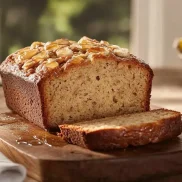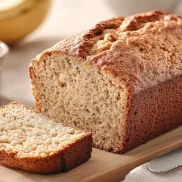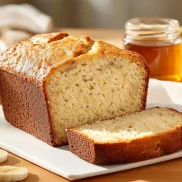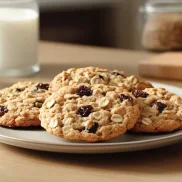Have you ever wondered, “Can banana replace butter?” Whether you’re a seasoned baker or someone looking for healthier alternatives, this is a question worth exploring. Butter has long been a staple in baking, loved for its ability to enhance flavor and texture. However, with the rise of health-conscious diets and plant-based lifestyles, many are turning to creative substitutes like bananas. Not only are bananas a natural, wholesome option, but they also bring their own unique qualities to recipes. For a great example of how this works, check out this banana bread recipe no butter. Let’s dive into the world of butter, its role in baking, and whether bananas can truly take its place.
Table of Contents
Understanding the Role of Butter in Baking
Butter is more than just an ingredient—it’s a game-changer in the world of baking. Its role goes beyond providing richness; butter influences texture, flavor, and even the chemistry of your baked goods. To understand whether bananas can replace butter, it’s essential to first grasp the key functions of butter in recipes.
What Butter Does in Recipes
Butter serves multiple purposes in baking:
- Flavor Enhancement: Butter adds a creamy, savory taste that’s hard to replicate.
- Texture Creation: It helps create flaky pastries, tender cakes, and moist cookies.
- Leavening Agent: When creamed with sugar, butter traps air, giving baked goods their light and fluffy texture.
- Moisture Provider: Butter’s high fat content ensures baked goods don’t dry out.
- Binding Agent: It helps hold ingredients together, creating a cohesive batter or dough.
The Importance of Butter’s Fat Content
The fat in butter is crucial for:
- Tenderizing: Fat coats flour particles, reducing gluten formation, which results in tender baked goods.
- Flavor Carriage: Fat acts as a vehicle for flavors, ensuring every bite is delicious.
- Heat Transfer: During baking, butter’s fat melts, creating steam pockets that contribute to texture.
Without sufficient fat, recipes can end up dense, dry, or lacking the desired mouthfeel.
Common Butter Substitutes in Baking
When butter isn’t an option, there are several alternatives:
- Oils (Vegetable, Coconut, Olive): Great for moisture but lack the aerating ability of butter.
- Margarine: Mimics butter’s properties but is less natural.
- Applesauce: Adds moisture but can affect texture.
- Greek Yogurt: Provides creaminess but less richness.
- Mashed Banana: A popular choice for its natural sweetness and creamy texture.
Each substitute has its strengths and weaknesses, but mashed bananas stand out for their nutritional benefits and versatility. In the next sections, we’ll delve deeper into how bananas stack up against butter and when they’re the best choice for your recipes.
Nutritional Comparison: Banana vs. Butter
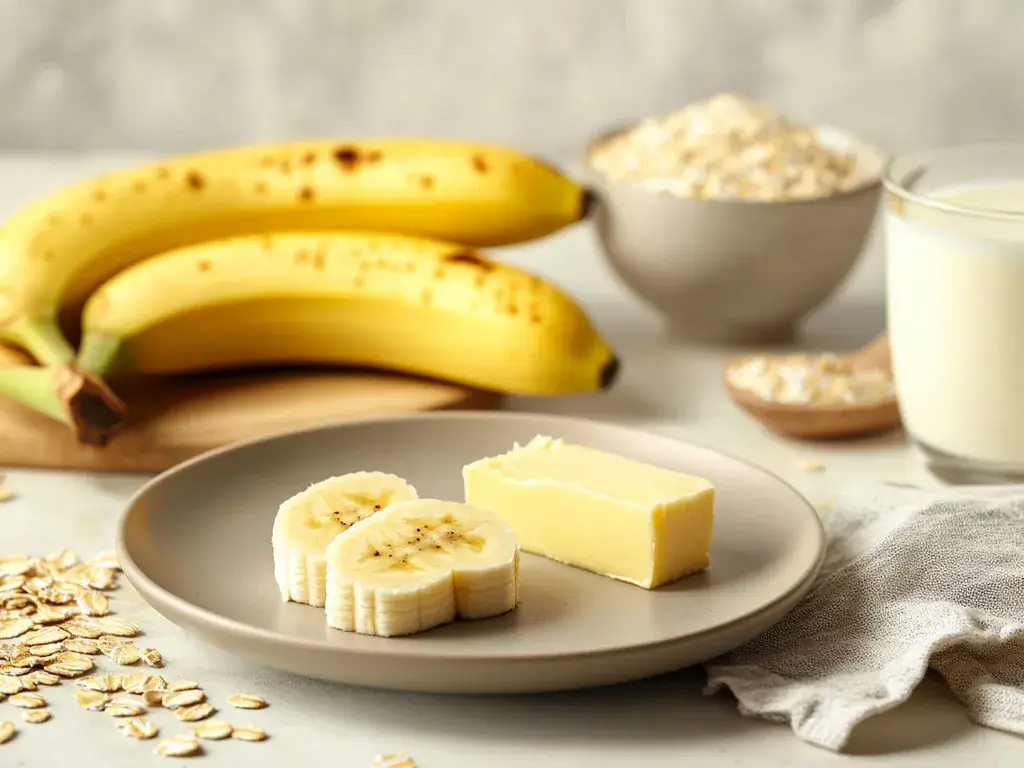
When considering whether bananas can replace butter in your recipes, understanding their nutritional profiles is essential. Bananas and butter differ vastly in their composition, offering unique advantages depending on your dietary needs. Let’s break it down into calories, nutrients, and their impact on recipe health.
Caloric Differences Between Banana and Butter
One of the most notable differences between bananas and butter is their calorie content:
- Butter: Contains approximately 102 calories per tablespoon, with most of these coming from fat. Butter is calorie-dense, which contributes to its rich texture and flavor but can make it less suitable for those monitoring their calorie intake.
- Banana: A medium-sized banana (about 118 grams) contains around 105 calories. When used as a butter substitute, 1/4 cup of mashed banana (equivalent to 1 tablespoon of butter) has only about 25 calories, making it a significantly lighter alternative.
Switching to banana can dramatically reduce the calorie content of baked goods, making it an excellent choice for weight management.
Vitamins and Minerals: A Side-by-Side Analysis
While butter is primarily fat, bananas offer a wide range of vitamins and minerals:
| Nutrient | Butter (1 tbsp) | Banana (1 medium) |
|---|---|---|
| Vitamin A | 11% DV | 1% DV |
| Vitamin D | 1% DV | 0% DV |
| Calcium | 1% DV | 1% DV |
| Potassium | 0% DV | 9% DV |
| Vitamin C | 0% DV | 17% DV |
| Dietary Fiber | 0g | 3g |
- Butter: Rich in fat-soluble vitamins like A and D, butter contributes to bone health and immune support but lacks fiber and potassium.
- Banana: Packed with potassium, vitamin C, and dietary fiber, bananas promote heart health, support digestion, and help maintain energy levels.
For those seeking to enhance the nutritional value of their recipes, bananas offer more diverse benefits than butter.
Impact on Overall Recipe Health
Substituting banana for butter has a significant impact on the health profile of baked goods:
- Reduced Saturated Fat: Butter is high in saturated fats, which can raise cholesterol levels when consumed excessively. Bananas, being fat-free, eliminate this concern entirely.
- Lower Cholesterol: Since bananas contain no cholesterol, they’re ideal for heart-healthy diets.
- Added Fiber: The natural fiber in bananas can improve digestion and make recipes more filling.
- Natural Sweetness: Bananas add a hint of sweetness, which may allow you to reduce added sugars in recipes.
That said, bananas may alter the flavor and texture of some recipes, making them less suitable for certain delicate pastries or savory dishes. However, for muffins, pancakes, and other baked goods, bananas can be a nutritious and delicious alternative to butter.
In the next section, we’ll explore how to effectively use bananas as a butter substitute while maintaining the integrity of your recipes.
Can Banana Replace Butter? How to Use It as a Substitute
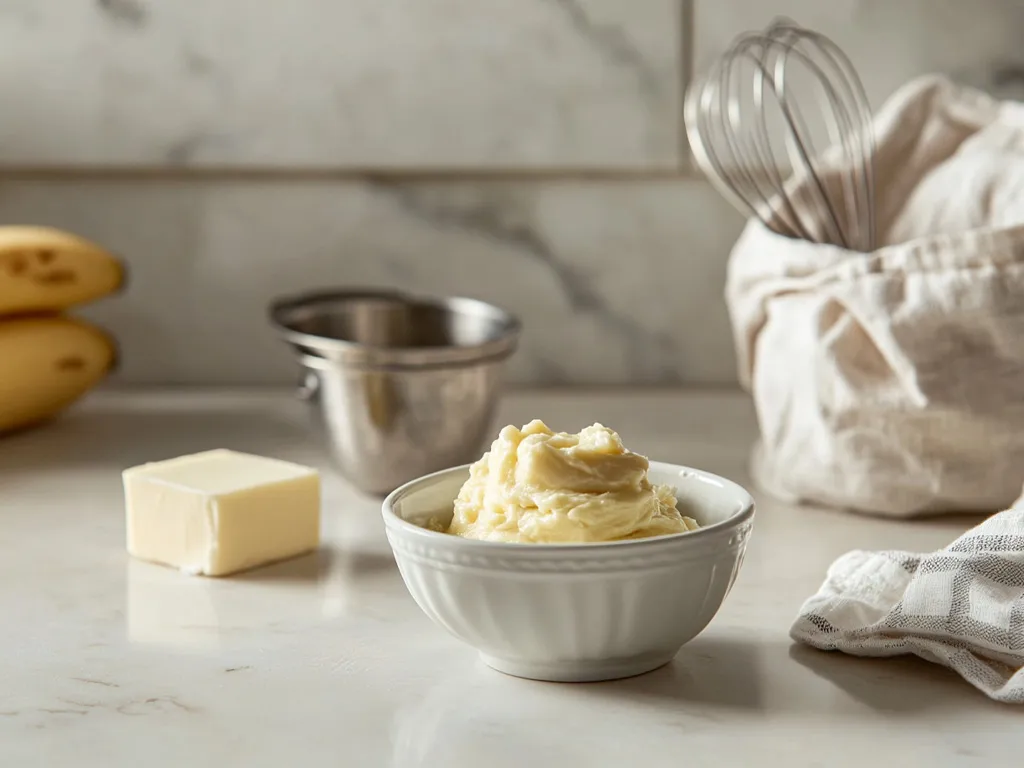
Bananas are not just a healthy option but also a versatile ingredient that can seamlessly replace butter in many recipes. Whether you’re baking cookies, cakes, or muffins, knowing the right techniques is essential to ensure success. Here’s how to make the most of bananas as a butter substitute.
Banana-to-Butter Conversion Ratios
The first step to substituting bananas for butter is understanding the proper conversion ratios:
- Use 1/2 cup of mashed banana to replace 1 cup of butter in most recipes.
- For smaller quantities, 1/4 cup of mashed banana is equivalent to 2 tablespoons of butter.
Since bananas are naturally moist, this substitution may require slight adjustments to other ingredients to maintain the correct texture and consistency.
Measuring Mashed Banana for Accuracy
Accuracy is key when using bananas in place of butter. Follow these tips for precise measurements:
- Mash Thoroughly: Use a fork or blender to create a smooth, lump-free consistency.
- Level the Measurement: Use a measuring cup and level off the mashed banana to avoid overestimating.
- Avoid Extra Liquids: Drain any excess liquid from overly ripe bananas before measuring.
Preparing Banana for Substitution
The quality of the bananas you use can significantly impact the final outcome of your baked goods. Here’s what to keep in mind:
Choosing Ripe Bananas for Best Results
- Ripe Bananas: Opt for bananas with yellow peels and brown spots, as they are sweeter and easier to mash.
- Avoid Overripe Bananas: While very ripe bananas may seem ideal, they can introduce too much moisture, affecting the texture of your recipe.
If your bananas aren’t ripe enough, you can speed up the process by placing them in a paper bag with an apple overnight.
Adjusting Recipe Texture and Taste
Bananas add natural sweetness and moisture, which may require some tweaks to your recipe. Here’s how to adapt:
Balancing Moisture in the Batter
- Reduce Liquid Ingredients: If the batter seems too runny, cut back on milk, water, or other liquids.
- Add Dry Ingredients: Incorporate a tablespoon of flour or oats to balance excess moisture.
Additionally, bananas may alter the taste of your baked goods. Their natural sweetness and fruity flavor pair well with desserts but might not suit savory dishes. Consider:
- Enhancing Sweetness: Reduce added sugar to prevent an overly sweet outcome.
- Masking Banana Flavor: Add vanilla extract, cinnamon, or cocoa powder for a complementary flavor profile.
With these tips, using bananas as a butter substitute can be a breeze, allowing you to create healthier, flavorful baked goods without compromising on quality.
Recipes That Work Well with Banana Instead of Butter
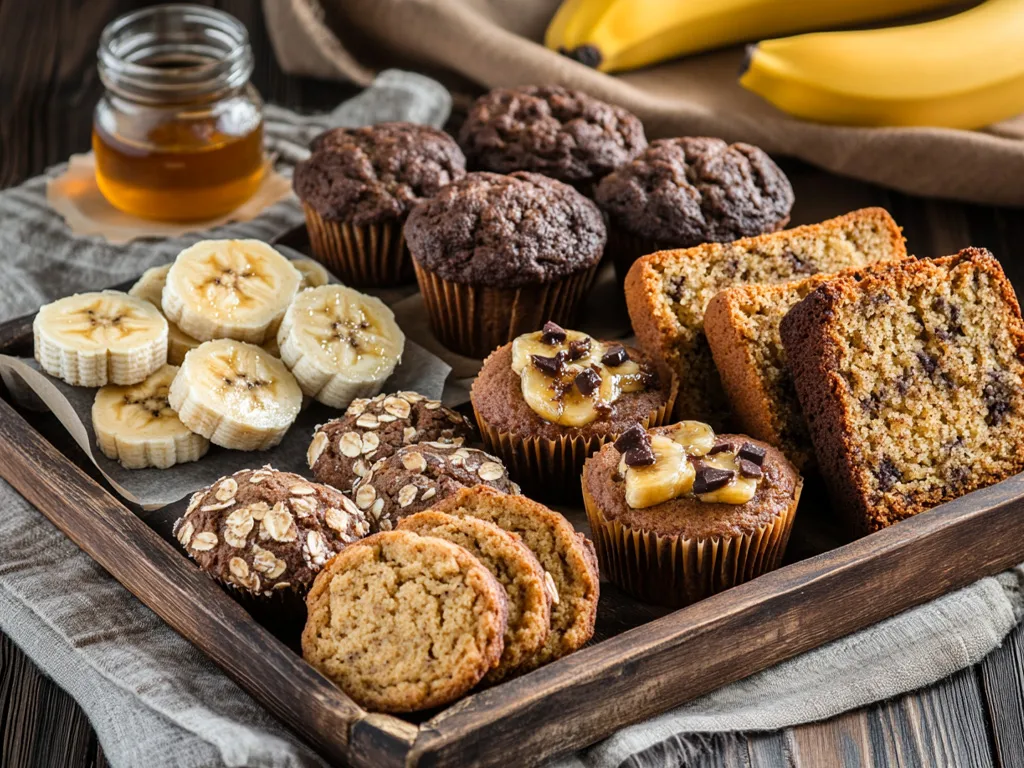
Bananas are an incredibly versatile ingredient, making them a fantastic butter substitute for a variety of recipes. From classic baked goods to hearty breakfast favorites, the possibilities are endless. Here are some delicious ideas to inspire your culinary creativity.
Baked Goods: Muffins, Cookies, and More
Bananas shine in baked goods, especially those that benefit from their natural sweetness and moisture. Some top picks include:
- Muffins: Banana substitutes work beautifully in recipes for banana bread muffins, blueberry muffins, or even chocolate chip muffins. The added moisture ensures a tender crumb, while the subtle banana flavor pairs well with various mix-ins.
- Cookies: Chewy cookies, such as oatmeal raisin or peanut butter cookies, are excellent candidates for banana substitution. Use mashed banana to replace butter, and you’ll achieve a soft, cake-like texture.
- Cakes and Brownies: Dense and moist cakes like banana chocolate cake or fudgy brownies can benefit from the extra moisture bananas provide.
For best results, balance the recipe’s sweetness by reducing added sugar, as bananas contribute their own natural sugars.
Pancakes and Waffles with Banana Substitutes
Breakfast staples like pancakes and waffles get a healthy makeover when you use bananas instead of butter. Here’s why they’re a great match:
- Fluffy Pancakes: Mashed bananas can create light and airy pancakes without compromising on taste. Pair them with a hint of vanilla or cinnamon for an extra boost of flavor.
- Crispy Waffles: Bananas add a slight crispiness to waffles while keeping the inside soft and fluffy. Add a handful of chopped nuts or chocolate chips for variety.
To keep your batter balanced, reduce the amount of liquid ingredients to avoid overly soggy results. A sprinkle of baking powder can also help maintain fluffiness.
Vegan and Dairy-Free Options Featuring Banana
For those following plant-based diets, bananas are a dream ingredient. They’re dairy-free, cholesterol-free, and nutrient-rich, making them a natural choice for vegan baking and cooking. Popular recipes include:
- Vegan Banana Bread: A classic recipe that replaces both butter and eggs with bananas, resulting in a moist, flavorful loaf.
- Dairy-Free Cookies: Combine mashed bananas with plant-based chocolate chips for a treat everyone can enjoy.
- Energy Bites: No-bake recipes that mix mashed bananas, oats, and peanut butter for a quick and healthy snack.
Using bananas as a butter substitute not only aligns with vegan and dairy-free lifestyles but also enhances the nutritional profile of your recipes by adding fiber, potassium, and vitamins.
Bananas bring a unique charm to these dishes, offering a blend of health benefits and delightful flavors. In the next section, we’ll explore the potential challenges and how to overcome them when using bananas in place of butter.
Potential Challenges When Using Banana
While bananas are a fantastic substitute for butter, they come with their own set of challenges. Understanding these potential issues can help you make adjustments and ensure the success of your recipes.
Texture Variations: How Recipes May Differ
One of the primary challenges when replacing butter with banana is the change in texture:
- Cakes and Cookies: Bananas add moisture, which can result in a denser texture. While this works well for certain recipes like banana bread or brownies, it may not be ideal for light and airy cakes.
- Pastries: Butter is essential for creating flaky layers in pastries like croissants or pie crusts. Bananas lack the solid fat structure needed for this effect, leading to a less crispy outcome.
- Binding Issues: While bananas can act as a binding agent, their softer consistency may not hold some batters or doughs together as firmly as butter.
To address these issues, consider:
- Adding a tablespoon of flour or cornstarch to absorb excess moisture.
- Using a mix of banana and another fat substitute, like coconut oil, for a more balanced texture.
Flavor Profile Changes: Sweetness and Aroma
Bananas have a distinct sweetness and fruity aroma, which can alter the flavor profile of your recipes. This can be a pro or a con depending on the dish:
- Sweet Dishes: The natural sweetness of bananas can reduce the need for added sugars, making them perfect for desserts and breakfast items.
- Savory Dishes: The fruity undertone of bananas may clash with savory flavors, making them less suitable for recipes like biscuits or savory pies.
To mitigate these changes:
- Balance Flavors: Add complementary spices like cinnamon, nutmeg, or vanilla to enhance the natural banana flavor.
- Mask Sweetness: For savory recipes, use a less ripe banana and add herbs or spices to balance the taste.
Storage and Shelf Life of Banana-Based Recipes
Recipes made with bananas have a shorter shelf life compared to those made with butter:
- Moisture Content: The higher moisture level in bananas can lead to quicker spoilage or mold growth.
- Refrigeration: Banana-based goods often need refrigeration to extend freshness, which can affect texture over time.
Tips for storage:
- Store banana-based baked goods in an airtight container in the refrigerator for up to 4-5 days.
- Freeze items like muffins or pancakes for longer storage, ensuring they’re well-wrapped to prevent freezer burn.
- Reheat refrigerated or frozen items to restore some of their original texture and flavor.
By being aware of these potential challenges and planning accordingly, you can make the most of bananas as a butter substitute. In the next section, we’ll delve into the health benefits of replacing butter with bananas and why it’s a smart choice for many diets.
Health Benefits of Replacing Butter with Banana
Using bananas as a butter substitute offers numerous health benefits, making it a smart choice for those seeking a healthier diet. This natural ingredient can enhance the nutritional value of your recipes while supporting specific dietary goals.
Reduced Saturated Fat and Cholesterol
One of the most significant advantages of replacing butter with banana is the reduction in saturated fat and cholesterol:
- Butter: Contains high levels of saturated fat and cholesterol, which, when consumed excessively, can contribute to heart disease and elevated cholesterol levels.
- Banana: Contains no saturated fat or cholesterol, making it heart-friendly and ideal for people aiming to lower their cholesterol levels.
By reducing the intake of saturated fats, substituting banana for butter can support cardiovascular health and decrease the risk of chronic diseases.
Enhanced Nutritional Content: Fiber and Potassium
Bananas are a powerhouse of essential nutrients that butter lacks:
- Dietary Fiber: Bananas provide about 3 grams of fiber per medium fruit, which promotes healthy digestion and helps maintain steady blood sugar levels.
- Potassium: With approximately 400 mg of potassium per banana, this fruit supports heart health, muscle function, and electrolyte balance.
- Vitamins and Antioxidants: Bananas are rich in vitamin C and vitamin B6, which boost immunity and aid in energy production.
Adding these nutrients to your baked goods not only makes them more nutritious but also provides sustained energy and satiety.
Ideal for Weight Management and Vegan Diets
Substituting banana for butter can be especially beneficial for weight management and those following plant-based lifestyles:
- Lower Calories: Bananas are significantly lower in calories than butter. One tablespoon of butter has about 102 calories, whereas an equivalent amount of mashed banana has only 25 calories. This substitution can help reduce the overall calorie content of your recipes.
- Plant-Based Alternative: Bananas are naturally vegan, making them a perfect choice for plant-based and dairy-free diets. They’re also cholesterol-free, aligning with health-conscious and ethical eating practices.
Additionally, bananas add natural sweetness to recipes, which can reduce the need for added sugars. This dual benefit of lower fat and sugar content makes banana-based recipes ideal for those looking to lose weight or maintain a balanced diet.
By replacing butter with bananas, you’re not only making your dishes healthier but also introducing a burst of natural nutrients. In the next section, we’ll address common myths and misconceptions about using bananas as a butter substitute.
Common Myths About Substituting Banana for Butter
While bananas are a popular and healthy alternative to butter, some misconceptions can lead to unrealistic expectations or missteps in the kitchen. Let’s debunk common myths about using bananas as a butter substitute.
Does Banana Work for All Recipes?
A common myth is that bananas can seamlessly replace butter in every recipe. While bananas are versatile, they’re not universally suitable:
- Great for Moist Recipes: Bananas work best in baked goods that thrive on moisture, such as muffins, quick breads, and brownies.
- Not Ideal for Pastries: Recipes like puff pastries and pie crusts rely on butter’s solid fat to create flakiness, something bananas can’t replicate.
If you’re attempting a recipe that relies on butter for texture or structure, consider blending bananas with another fat, such as coconut oil, to achieve better results.
Will Banana Always Save Calories?
Another myth is that substituting banana for butter always leads to a lower-calorie dish. While bananas are generally lower in calories, the overall calorie count depends on the recipe:
- Banana: A 1/4 cup serving of mashed banana contains about 50 calories.
- Butter: A similar amount of butter contains approximately 200 calories.
However, recipes that require large quantities of bananas may introduce additional natural sugars, which can increase calorie content. To keep the dish light, monitor portion sizes and reduce added sweeteners when using bananas.
Can Banana Maintain Texture in Complex Bakes?
It’s easy to assume that bananas can perfectly replicate butter’s role in complex bakes, but this isn’t always the case:
- Light and Fluffy Bakes: Butter helps incorporate air into batters, giving cakes and cookies their light texture. Bananas, being denser, can result in a heavier bake.
- Flavor Profile: While butter has a neutral flavor, bananas add a distinct fruity taste that might not suit every recipe.
To address these challenges, try these tips:
- Add a pinch of baking powder to lighten dense batters.
- Pair bananas with complementary flavors like vanilla or cocoa to balance the fruity notes.
Bananas are an incredible substitute for butter in the right circumstances, but understanding their limitations ensures better results. In the next section, we’ll provide practical tips for success when replacing butter with bananas in your favorite recipes.
Frequently Asked Questions
What is a substitute for vegetable oil in banana bread?
Several alternatives can replace vegetable oil in banana bread, including:
- Mashed Bananas: Adds moisture and natural sweetness while reducing fat.
- Applesauce: A low-fat substitute that works well in most recipes.
- Greek Yogurt: Provides creaminess and tanginess for a balanced flavor.
Is butter or oil better for banana bread Reddit?
This depends on your preference:
- Butter: Adds richness and a tender crumb.
- Oil: Yields a moist texture and is easier to mix.
Many Reddit users suggest combining both for the best of both worlds.
What is the best oil to use when making banana bread?
Neutral-flavored oils like canola oil or vegetable oil are great for banana bread. Coconut oil is another excellent option, adding a hint of flavor that pairs well with bananas.
Are there vegan alternatives to using bananas as a substitute for butter?
Absolutely! Other vegan options include applesauce, avocado, or plant-based margarine. These substitutes work similarly to bananas in providing moisture and binding ingredients.
How do bananas compare to other butter substitutes?
Bananas stand out due to their natural sweetness, fiber, and nutrient content. While options like applesauce or yogurt are also popular, bananas offer unique flavor and texture benefits for certain recipes.
Conclusion
So, can banana replace butter? Absolutely! While bananas may not work in every recipe, they’re a versatile and nutritious alternative for many baked goods. By substituting bananas for butter, you can lower the fat and calorie content of your dishes, enhance their nutritional value, and enjoy the natural sweetness they bring. From muffins to pancakes, this plant-based option aligns with health-conscious and vegan diets alike. Just remember to consider the texture, flavor, and storage implications when making the switch.
Whether you’re looking to cut down on saturated fats or simply try something new, bananas offer an exciting and wholesome way to elevate your baking. Experiment with this simple swap and discover how deliciously satisfying it can be!


